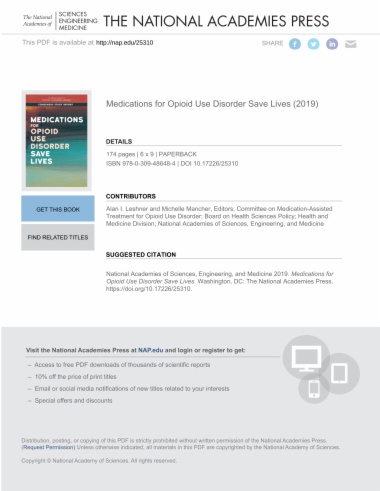

The opioid crisis in the United States has come about because of excessive use of these drugs for both legal and illicit purposes and unprecedented levels of consequent opioid use disorder (OUD). More than 2 million people in the United States are estimated to have OUD, which is caused by prolonged use of prescription opioids, heroin, or other illicit opioids. OUD is a life-threatening condition associated with a 20-fold greater risk of early death due to overdose, infectious diseases, trauma, and suicide. Mortality related to OUD continues to escalate as this public health crisis gathers momentum across the country, with opioid overdoses killing more than 47,000 people in 2017 in the United States. Efforts to date have made no real headway in stemming this crisis, in large part because tools that already exist—like evidence-based medications—are not being deployed to maximum impact.
To support the dissemination of accurate patient-focused information about treatments for addiction, and to help provide scientific solutions to the current opioid crisis, this report studies the evidence base on medication assisted treatment (MAT) for OUD. It examines available evidence on the range of parameters and circumstances in which MAT can be effectively delivered and identifies additional research needed.